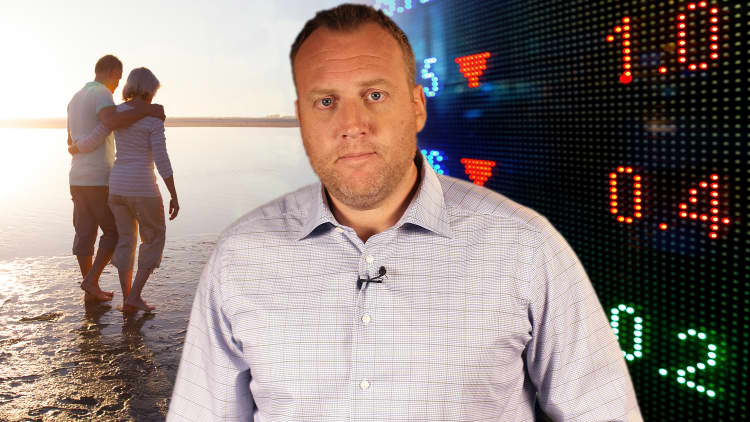On the face of it, comparing yourself to a large financial institution seems crazy. What could you possibly have in common?
You both have assets.
The only real difference is that many more people depend on a big bank than on you.
One Wall Street winner—Jamie Dimon, CEO of JP Morgan Chase — emerged from the financial crisis whole. Some of the bank's investors more than tripled their money in the wake of the financial crisis. Dimon's strategy: preparing for the worst, not simply hoping things will turn out OK. The bank performs dozens of regular stress tests on a range of scenarios, including wars and recessions.
When you think about it, you already do that. What if you got sick? That's why you have health insurance. What if something happened to your car? That's why you have theft and liability insurance for your car.
Do your own financial stress test by creating a financial plan — that's the foundation of your review. So if you don't have one, put that on your to-do list. Don't be intimidated. A financial plan doesn't have to be complicated.
Then, like the banks do, test different parts of your financial life to see how they'd perform in bad weather.
Annually check these four key things recommended by Andrew Crowell, vice chairman of D.A. Davidson & Co. Wealth Management.
You want to review regularly to identify any vulnerable points. Crowell recommends testing your portfolio and general finances, and how they'd react if interest rates rise, the stock market drops or you needed to meet a sudden expense. He uses the acronym "MAID" to remember them easily: markets, accidents, income disruption and death.
What goes up
"We know the markets go up and down," Crowell said. Sometimes you'll see a prolonged period of quiet, but don't go thinking there's nothing to worry about.
Crowell cites the fourth quarter of 2018, when the markets saw a steep, sudden drop. Ask yourself how such a downturn would impact our personal financial situation.
"If the market took a 10%, 20%, 30% hit, how would your assets look?" Crowell said.
Take a look at interest rates. If you carry a balance on a credit card with an adjustable rate, higher rates over a period of months would mean the cost of servicing that debt goes up — another thing to think about in your financial review.

Accidents happen
Scout your insurance coverage in case of an accident, whether a health issue, a car accident or a problem in the home.
Crowell recommends reviewing insurance coverage.
"It's rarely predictable but accidents do take place," he said. "Do a refresh once a year to see if your deductibles are too high or your coverage is too low."
Above all, make sure you are covered.
More from Invest in You:
What surprises people most about Roth IRAs
Here's what it takes to become a 401(k) millionaire at any age
What people wish they'd done before a tragic accident
Income disruption
Layoffs happen. Business slumps happen. If you're in sales or something else that is tied to an economic downturn, you could see your salary dip.
In that case, you may need emergency cash to get through tight times. The general recommendation is three to six months of expenses saved up. If you're a homeowner, though, you might want to have a bit extra in case of some surprising home repair. The last thing you want to do is have to put a big expense of a credit card, dig into a 401(k) plan account or sell off investments when the timing is bad.
D is for … death
Well, D actually is for death. It's a harsh subject, but it needs to be discussed.
Do you have your estate documents in order? A living will? Even if you're a salaried worker who just has some stuff and not a business tycoon with complex layers of assets, you still need a will.
Make sure you've got beneficiary designations on your retirement and any investment accounts. You can't name a beneficiary to a checking account, but you can make it into a transfer on death (TOD) account.
This designation didn't exist some years ago, Crowell says, but it could be a good strategy for younger people whose assets aren't particularly complicated. It is easy to designate a sibling, parent or significant other as the beneficiary for a taxable checking account to make sure the account's assets are distributed without having to go to probate.
Check out 5 Money Lessons Everyone Should Know by Age 30.
Disclosure: NBCUniversal and Comcast Ventures are investors in Acorns.





